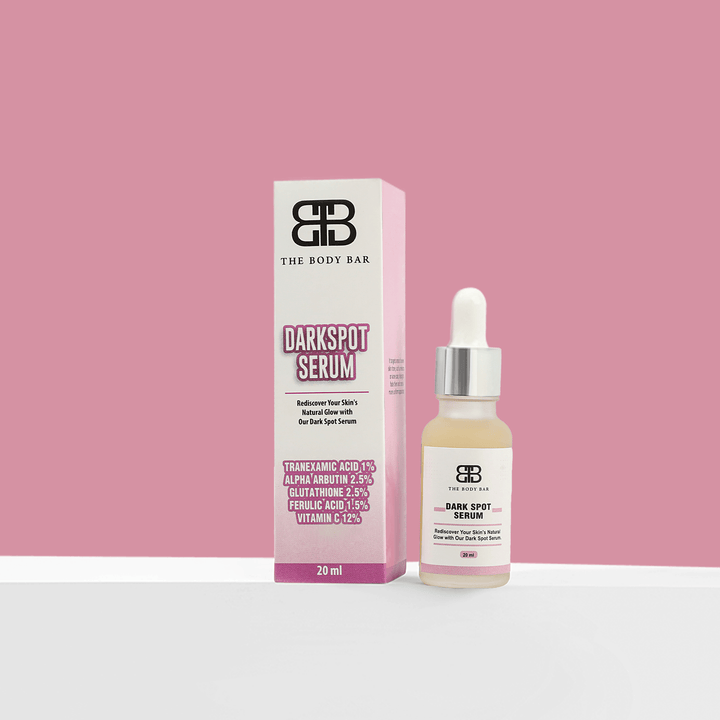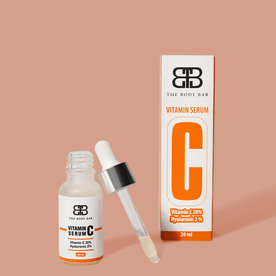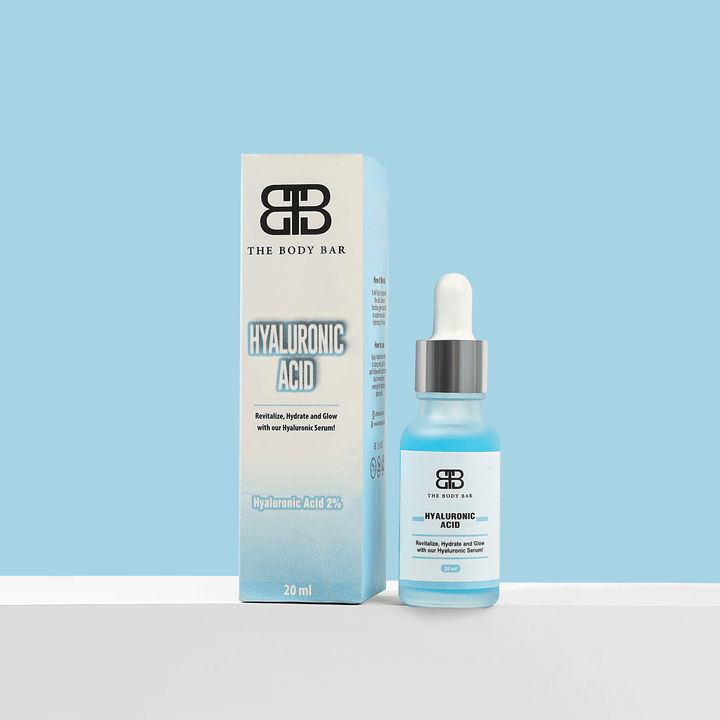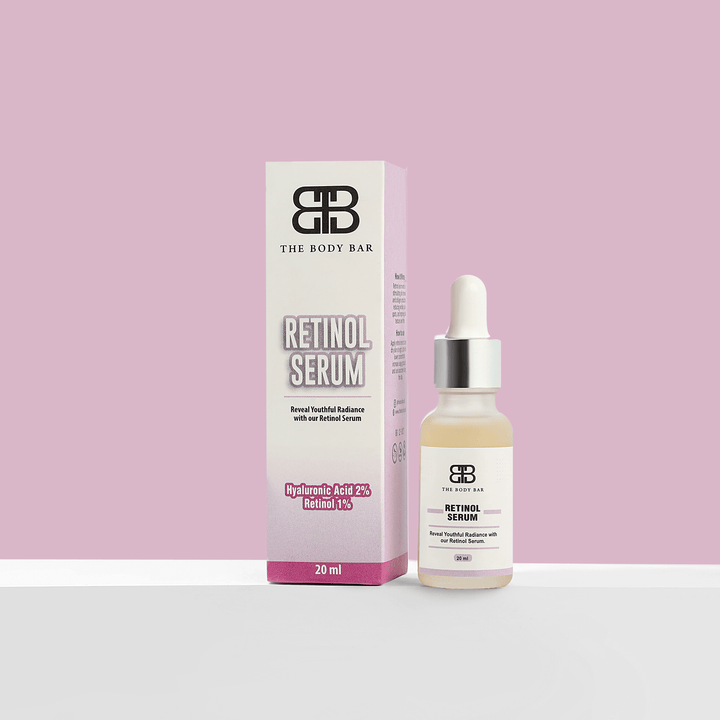Imagine standing in front of your bathroom mirror with two small bottles in your hand—one is a DIY serum you lovingly mixed at home with aloe vera gel and a few drops of vitamin E oil, while the other is a sleek, store-bought serum packed with carefully formulated actives like hyaluronic acid, niacinamide, and peptides. One feels like a homemade remedy passed down through generations, while the other carries the sophistication of modern science. The question that lingers: which one truly serves your skin better?
A Tale of Two Bottles
In the world of skincare, serums have become the crown jewels highly concentrated, lightweight, and targeted formulas that penetrate deeper than your average moisturizer. But with the rise of Pinterest recipes and “kitchen skincare hacks,” many people in Pakistan find themselves torn between DIY solutions and professional-grade serums available at The Body Bar’s collection of serums. Let’s explore the pros and cons of each approach so you can make a choice that’s not only skin-smart but also safe and effective.
The Charm of DIY Serums
DIY serums appeal to many because of their simplicity and affordability. Think of it as brewing chai at home personalized, comforting, and often inexpensive compared to a café latte. Pakistani households are already rich with natural remedies; from turmeric masks for brightening to rose water tonics for soothing, it feels natural to try whipping up a serum too.
Pros of DIY Serums:
- Cost-Effective – Mixing aloe vera gel with essential oils costs far less than a branded serum.
- Natural Ingredients – The sense of purity is appealing. Who doesn’t like the idea of feeding their skin raw, unprocessed ingredients?
- Customization – Just like tailoring a shalwar suit to your body, you can customize DIY serums to address dryness, pigmentation, or acne.
- Cultural Familiarity – In Pakistan, ingredients like honey, lemon, turmeric, and sandalwood are household staples, making DIY easy and accessible.
But here’s where the metaphor shifts: DIY skincare is like cooking biryani without a recipe book. Sometimes it turns out delicious, but other times you end up with burnt rice and uneven flavors.
Cons of DIY Serums:
- Lack of Precision – How much vitamin C powder is too much? Without exact percentages, potency becomes guesswork.
- Stability Issues – Natural ingredients oxidize quickly. That DIY vitamin C serum you kept in the fridge? It may lose potency within days.
- Risk of Reactions – Essential oils can cause burns or breakouts if not diluted properly. What feels soothing to one skin type might trigger allergies in another.
- Short Shelf Life – Unlike products with preservatives, DIY mixes spoil quickly, often within a week.
The Science of Store-Bought Serums
Now let’s flip the bottle to the professional side. Store-bought serums, like those in The Body Bar’s Brightening Serums or Anti-Aging Serums, are the skincare equivalent of ordering a gourmet meal prepared by a chef. You’re not just paying for the dish you’re paying for the science, precision, and expertise that go into making it safe and effective.
Pros of Store-Bought Serums:
- Backed by Research – Ingredients like niacinamide, hyaluronic acid, and retinol are clinically studied to show real results.
- Exact Formulation – Every drop has a consistent concentration, ensuring stable performance.
- Longer Shelf Life – Preservatives ensure your serum stays effective for months, not days.
- Targeted Solutions – Whether it’s acne scars, fine lines, or hyperpigmentation, there’s a serum designed to solve it.
- Visible Results – Professional serums, like those in our Vitamin C Collection, deliver results you can see in weeks.
Cons of Store-Bought Serums:
- Higher Cost – Quality comes with a price tag, making them more expensive than DIY.
- Overwhelming Variety – Walking into The Body Bar’s online Serum Section can feel like standing in a library of skincare—so many options, where to begin?
- Adjustment Period – Some actives like retinol may cause temporary irritation before showing improvements.
Think of store-bought serums as enrolling your skin in a well-structured university course, where every subject (ingredient) has been carefully selected, measured, and balanced for long-term benefits.
Where DIY Works—and Where It Doesn’t
It’s important to note that not all DIY efforts are harmful. For example, using rose water as a toner or aloe vera gel as a soothing serum base is harmless and beneficial. But when it comes to high-performance ingredients like retinol, peptides, or stabilized vitamin C, DIY becomes risky.
If you’re dealing with acne scars, dullness, or aging concerns, a store-bought serum like our Niacinamide Serum or Retinol Serum is a far safer and more effective option.
A Balanced Approach: Best of Both Worlds
The smartest skincare routines often borrow from both traditions. Just as we mix desi remedies with modern medicine in Pakistan, you can pair a store-bought serum with DIY basics. For example:
- Use a professional Hyaluronic Acid Serum for deep hydration, then complement it with a DIY honey mask for added nourishment.
- Pair a Vitamin C Serum with DIY rose water for a natural glow.
This hybrid approach gives you the reassurance of science-backed results while keeping the charm of our cultural skincare traditions alive.
Which Bottle Should You Choose?
At the end of the day, choosing between DIY and store-bought serums is like choosing between hand-sewn clothes and designer outfits. Both have their place, but when it comes to long-term skin health and visible results, store-bought serums hold the edge.
If you’re just experimenting for fun, a DIY aloe vera serum may work. But if your goal is to fight fine lines, fade pigmentation, or prevent breakouts, nothing beats the precision and potency of professional serums available at The Body Bar.
Your skin deserves more than guesswork it deserves care that’s safe, effective, and transformative.





